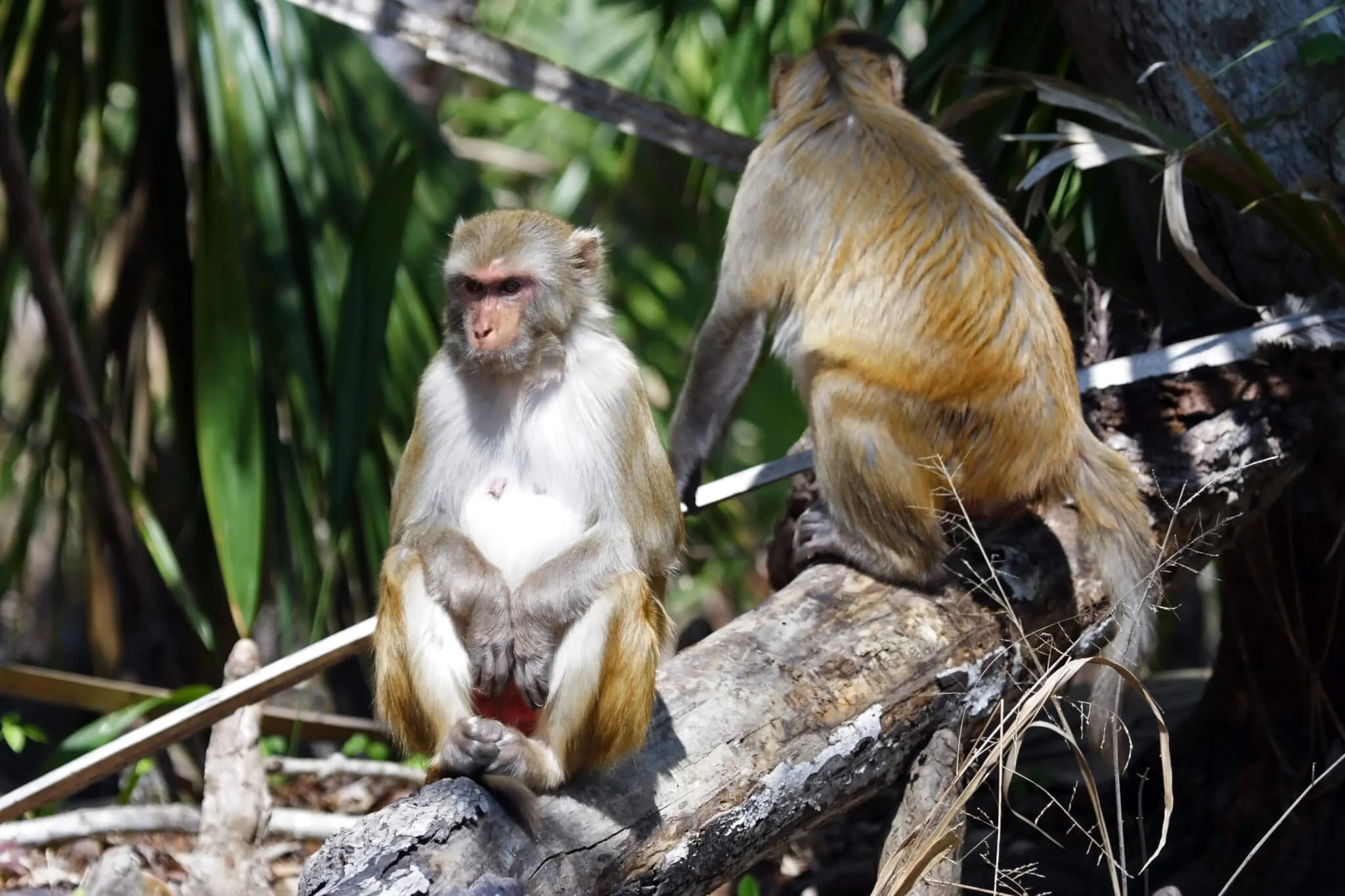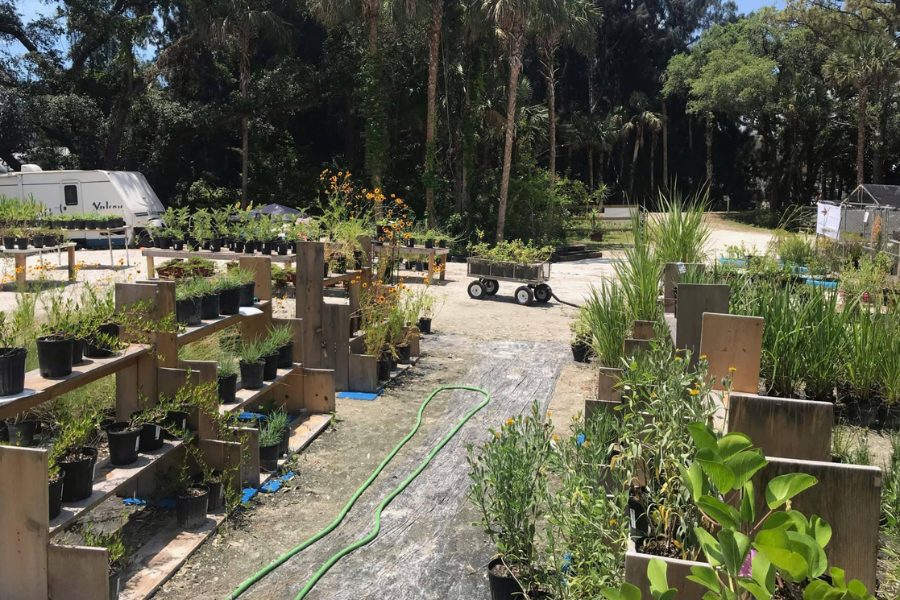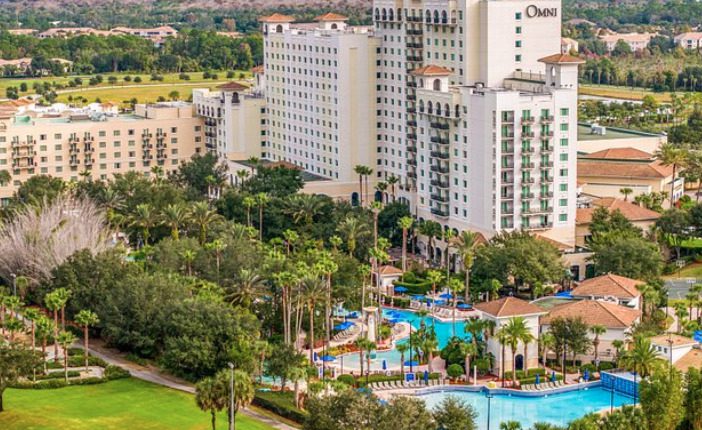
Image via Shutterstock/William Silver
These non-native species are decimating populations of native species, harming our environment, and posing health risks to humans.
Can you believe that there are over 500 non-native species in Florida? Our state’s warm climate makes it easy for many non-native plants and animals to not only survive, but spread and establish breeding populations. Many do not have a negative impact, however there are some invasive species that harm our environment, food web, native populations, health, and economy.
How did they get here? Some were exotic pets that escaped or were released into the wild. Others were brought through international trade or came from natural disasters like hurricanes.
The Nonnative Fish and Wildlife Program of the Florida Fish and Wildlife Conservation Commission (FWC) aims to reduce the adverse effects of non-native species. The program’s team focuses on prevention as well as early detection by monitoring and removing non-native species, as well as educating the public.
Here are 7 of the most harmful non-native species in Florida:
Burmese Pythons
Originally introduced through the exotic pet trade, Burmese pythons are highly invasive and detrimental to Florida’s ecosystem. They are one of the largest snakes in the world and prey upon a variety of mammals, birds, reptiles, and even alligators and deer. They have decimated native wildlife and disrupted the natural food chain in the Everglades, where there is an established breeding population. Now they’re expanding into other parts of the state. Their population is challenging to estimate precisely, but it’s believed to be in the thousands, with some experts suggesting tens of thousands.
The FWC is prioritizing python control and management. The agency’s multi-faceted approach includes The Florida Python Challenge, a ten-day competition encouraging participants to remove Burmese pythons from seven Commission-managed lands in South Florida.
Feral Hogs
European settlers brought feral hogs to Florida for hunting and domestic purposes. Today feral hogs are in all 67 Florida counties, and the population is said to be over 500,000. They cause extensive damage to Florida’s environment by rooting up vegetation, destroying crops, and negatively impacting water quality by disturbing wetlands. They also compete with native wildlife for food resources. Wild hogs can carry parasites and diseases – some that can be transmitted to people, pets, and livestock. The FWC encourages hunters and trappers to take precautions when handling and butchering wild hogs. They can be trapped and hunted year-round with landowner permission.
Cane Toads
Cane toads were first brought to Florida in the 1930s to control agricultural pests in sugarcane fields, but experts say that the current populations resulted from escapes and releases by importers in the 1950s and 60s. Today they’re found in Central and South Florida and are toxic to native species that consume them, as well as to pets. If your pet bites or swallows a cane toad, they can become sick and die in as little as 15 minutes without proper treatment, according to the Florida Fish and Wildlife Conservation Commission. Cane toads also compete with amphibians for native resources. To complicate matters even more, they are similar in appearance to native southern toads. Learn more about the differences here.
Cuban Tree Frogs
Native to Cuba, the Cayman Islands, and the Bahamas, these treefrogs likely arrived through the horticultural trade and as stowaways on cargo shipments. The first one was detected in Miami in 1952. There have been breeding populations in 36 counties for at least 10 years. They eat at least five different species of native frogs, as well lizards and small snakes, and their tadpoles compete with native tadpoles for space and food. They are found in both natural and urban areas and can invade homes and clog pipes. They can even cause power outages by short-circuiting utility switches. Our native tree frog species, on the other hand, aren’t known to cause utility problems.
Lionfish
Lionfish are believed to have been introduced to Florida waters by aquarium enthusiasts releasing unwanted pets, but they have an adverse impact on Florida’s coral reefs and marine ecosystems. As voracious predators, they have reduced populations of native fish, causing imbalances in the food chain. They are found in coral reefs and rocky areas of the ocean. Divers, anglers and commercial harvesters are encouraged to remove lionfish in Florida waters.
Giant African Land Snails
This invasive species is more than just a mild nuisance. The Giant African land snail consumes at least 500 types of plants and can cause structural damage to plaster and stucco structures. What’s even worse is the threat it poses to human health: this snail can carry a parasitic nematode called rat lungworm that can cause meningitis. The snail was first found in southern Florida in the 1960s, and it took 10 years and $1 million to eradicate it. It was found again in Broward and Miami-Dade counties in 2011 and eradicated in 2021. State and Federal officials are currently responding to new invasions in Broward, Lee, and Pasco counties. Officials suspect they were originally brought in illegally as pets. They are difficult to control because the snails contain both male and female reproductive organs, so they don’t need a mate to reproduce and can lay up to 500 eggs at a time, according to the U.S. Department of Agriculture.
Rhesus Macaque
In the 1930s, the manager of a glass bottom boat operation reportedly released six rhesus macaques on an island in the Silver River to attract tourists. Unfortunately, the monkeys did not stay on the island, and spread into the surrounding forests and established a breeding population. The monkeys did indeed start to attract tourists, so the owner Silver Springs Park released more monkeys in the 1940s north of the river. Estimates suggest there are several hundred rhesus monkeys in the area today, but trapping trapping and removal efforts have helped keep the population from drastically increasing over the years.
Rhesus macaques in Florida have tested positive for herpes B. a virus that can be spread through bites and scratches. Rhesus monkeys can become aggressive when fed by humans, and 18 incidents of rhesus macaque bites and scratches have been reported in Florida, however no confirmed cases of a human contracting herpes B from a macaque in the wild have been documented. In 2017, FWC passed a rule in 2017 prohibiting the feeding of any wild monkeys in Florida.
In addition to posing a threat to human health, the monkeys consume nearly 50 species of plants and possibly egg consumption of native species.
RELATED: 7 Best Places to See Alligators in Florida
Support Our Cause
Thank you for taking the time to read our work. Before you go, we hope you'll consider supporting our values-driven journalism, which has always strived to make clear what's really at stake for Floridians and our future.
Since day one, our goal here at Floricua has always been to empower people across the state with fact-based news and information. We believe that when people are armed with knowledge about what's happening in their local, state, and federal governments—including who is working on their behalf and who is actively trying to block efforts aimed at improving the daily lives of Florida families—they will be inspired to become civically engaged.


DeSantis wants to build golf courses and hotels in Florida’s state parks
When Gov. Ron DeSantis, R-Caddyshack, was majoring in history at Yale, I bet he heard someone quote that famous saying by philosopher George...

Want a more eco-friendly yard? Try one of these Florida native plant nurseries.
Choosing native plants creates a more sustainable and eco-friendly yard, benefiting both you and the environment. Awareness of the value of native...

5 places in Florida to donate clothes, shoes, and more
Decluttering your home can provide such a satisfying feeling of accomplishment. After sorting through all of your belongings and determining what...

8 Orlando hotels that pack as much fun as the theme parks
With waterslides, family arcades, playgrounds for the kids, and spas for mom and dad, these Orlando hotels will make your vacation unforgettable!...



